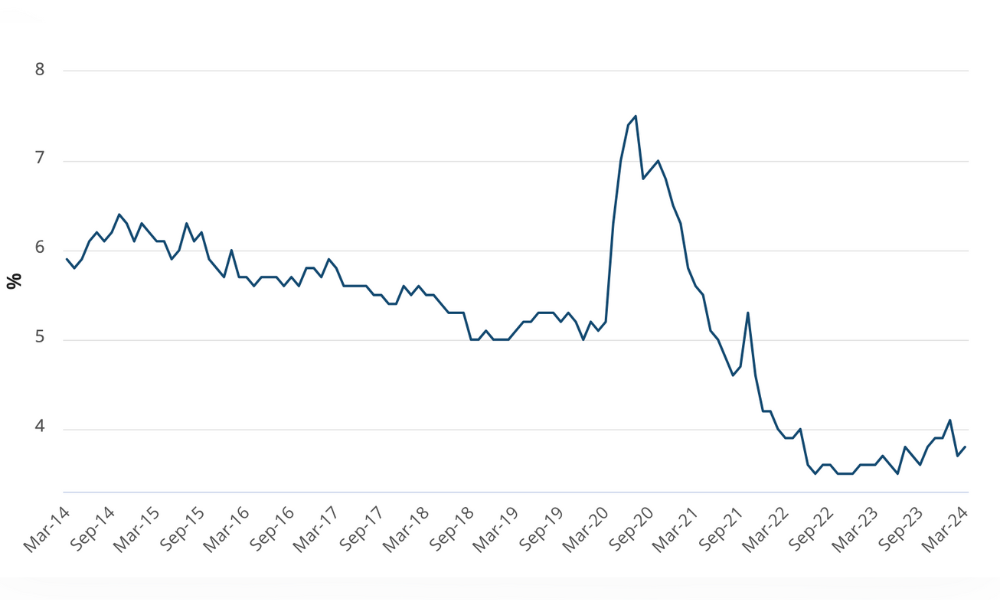In the 2010 budget the Government has announced yet further changes to superannuation. Tim Jenkins outlines how HR can overcome the complexities of an ever-changing superannuation scheme
In the 2010 budget the Government has announced yet further changes to superannuation. Tim Jenkins outlines how HR can overcome the complexities of an ever-changing superannuation scheme
Seasoned HR professionals will no doubt remember the joys of being across the specific offerings of their company superannuation plan, and the time spent in making sure the plan ran smoothly.
Superannuation provision has been mandatory in Australia for close to 20 years through the Superannuation Guarantee system. Announcements in this year's budget confirm the Superannuation Guarantee (SG) level is set to increase still further from the current level of 9 per cent of salaries to 12 per cent of salaries in 10 years' time. The typical employee can now expect their superannuation account to be their second highest financial asset after their family home.
However, as the SG system has matured, we have also witnessed a changed role for employers. The opportunity for an employer to differentiate its superannuation offering is quite limited. Indeed, given the limits placed on concessional contributions, what employees tend to value is flexibility and for any superannuation contributions in excess of the mandatory SG level to be voluntary.
Perhaps not surprisingly, we have seen the role of the employer change from superannuation plan sponsor to superannuation facilitator. Whereas five to 10 years ago many employers operated their own stand-alone corporate superannuation plan, this is now very much the exception, as a combination of less differentiation of benefit levels; onerous levels of compliance and regulation; and the need for scale, has led to the wind-up of these plans, and the greater use of master trust plans and industry funds.
In this context, the involvement in superannuation for the majority of Australian HR professionals has moved from running the company superannuation plan (often working closely with Finance), to the more limited roles of:
• Making sure the employer meets its SG obligations;
• Ensuring the chosen default superannuation fund continues to meet the needs of the employer, and complies with the Modern Awards;
• Facilitating choice of superannuation fund for those employees who request this;
• Facilitating voluntary contributions, whether by salary sacrifice or from after tax income;
• Directing employees to the best source for answering their superannuation questions and queries (as any advice should not be provided by HR but instead should be referred to a licensed financial advisor, or to the employee's chosen superannuation fund {which can provide limited intra-fund advice};
• Meeting any "grandfathered" superannuation arrangements for longer serving employees.
Provided employers, HR and payroll professionals learn the basics in these areas, superannuation should no longer be a scary subject for the HR generalist.
Getting up to speed with the changes to super
Superannuation has been regularly tweaked and changed at the edges, as successive governments seek to ensure the Australian retirement incomes system remains appropriate for the future. In the 2010 budget the government has announced yet further changes to superannuation, the most significant of which are:
• a gradual increase in the Superannuation Guarantee (SG) from 9 per cent to 12 per cent by 2019-20
• an increase in the Superannuation Guarantee age limit from 70 to 75 from 2013-14
• a new Government superannuation contribution for low income earners commencing in 2012-13 and initially paid in 2013-14
• an increase in the concessional contribution limit to $50,000 for those age 50 or more with account balances of less than $500,000 from 2012-13.
Other recent regulatory changes over the preceding two years have included:
• Superannuation incorporated into Modern Awards, which has the potential to restrict the default superannuation fund that can be used for certain employees;
• A reduction in the maximum concessional contribution limits, which were halved to $25,000 a year for those under age 50 (and $50,000 for those over age 50 up until 30 June 2012). This has led to a reduction in the level of employee voluntary contributions, particularly by higher earning employees, and those who started contributing to superannuation late and were playing catch-up, given the high levels of additional tax payable by the employee if the limits are breached;
• The definition of income used to determine eligibility for government support programs being broadened to include certain "salary sacrifice" superannuation contributions, leading some employers to review their remuneration structures and/or superannuation arrangements to take account of the new requirements;
• A retroactive and unfavourable change to the treatment of superannuation for temporary residents, which has led employers to reconsider superannuation arrangements for these employees;
• The removal of remaining grandfathering provisions relating to the definition of salary that employers could use for SG purposes - SG contributions must now be based on Ordinary Time Earnings without exception.
Expect further adjustments to superannuation in future
Ripoll, Cooper and Henry tax reviews
The government has commissioned three reviews which, depending on their conclusions and the extent to which the government embraces the recommendations, could well change the future shape of superannuation provision in Australia. These are:
• The Ripoll review, which looks at the way in which financial advice is delivered and paid for. The government has indicated it intends to adopt the Ripoll review recommendations, leading to all financial advice being commission free from 2012;
• The Cooper review, which reviews the operations and efficiency of the Australians superannuation industry, looks at renovating the way in which the superannuation system works. The Cooper review has released some interim proposals which include the suggestion that employers be required to make superannuation contributions electronically, and which will see changes to the way a default fund operates;
• The Henry tax review, which reviews how the tax system might operate in the future. The government immediately dismissed several of the Henry review recommendations, but has left several open for future consideration.
As we wait with interest to see what government decides to legislate, it is clear that superannuation in Australia is currently undergoing one of the most comprehensive reforms of our time.
In the mean time, employees are trying to make sense of what the recent changes will mean for them and will look to HR for further clarity on how and when their retirement savings are likely to be affected. For HR, it’s an opportunity to engage with employees and they must be ready and able to communicate the changes across the business.
Tips for making sure your default superannuation fund remains appropriate
Given the mandatory nature of SG contributions, all employers need to select a default fund to which their employees' superannuation contributions are paid if they do not select a fund themselves. Industry data shows that as many as 80 per cent of employees remain with the default investment option in the default fund chosen by their employer. Employers are encouraged to monitor the default fund selected to ensure that it continues to remain appropriate. Employers should consider the following points when reviewing their default fund:
• Take advice from a qualified expert
• Consider employee feedback - are there complaints relating to the fund?
• Does the fund provider provide support to the employer and employees to help simplify superannuation? Does the fund communicate adequately?
• Does the fund provide value-for-money, and competitive returns after fees and tax?
• Is group life insurance integrated with the default fund? If so, are premium levels reasonable, and are claims processed professionally?
• Does the fund work "like clockwork"; for example, can contributions paid electronically, and are member statements issued in a timely manner?
• If there are grandfathered benefits (e.g. closed defined benefit categories of member), could these continue to be delivered were the default fund changed?








